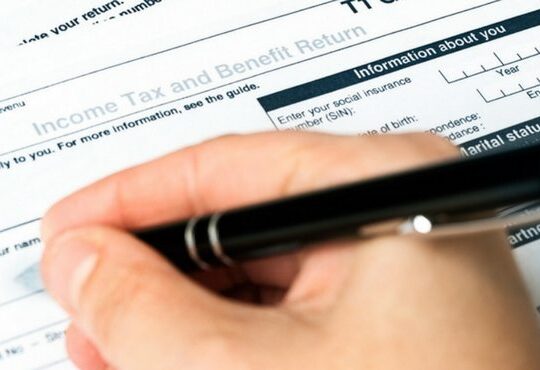Understanding the Northern Residents Deduction
TurboTax Canada
January 31, 2021 | 4 Min Read

Residents of certain regions of northern Canada can claim the Northern Residents Deduction (NRD) on their personal Income Tax and Benefit Return. This deduction reduces their taxable income on Line 26000, which lowers their tax liability and could increase a refund or lower a balance due. The deduction includes a basic amount, an additional amount and an amount for travel expenses. For Quebec residents, please review this link for more detailed information.
What Is the Northern Residents Deduction and Who Is Eligible?
Calculating the Basic Amount and the Additional Amount of the NRD
The basis for calculating the NRD is the Basic Residency Amount. This amount is $11 per day for people living in a prescribed northern zone and $5.50 per day for those living in a prescribed intermediate zone. To calculate your basic deduction, multiply the number of days when you resided in a prescribed zone by the amount applicable to your zone.
You may also qualify for the Additional Residency Amount, which is the same dollar amount as the basic residency amount, effectively doubling the amount of the deduction. To qualify for the additional amount, you must be the only person in your dwelling who is claiming the NRD. Depending on your spouse and children’s situation, it may be more advantageous to claim the additional amount rather than have two or more people claim the basic residency amount.
Calculating the Deduction for Travel Benefits
The other aspect of the NRD is the deduction for travel benefits. If you otherwise qualify for the NRD and certain travel benefits have been added to your income because they were paid by your employer, you may claim this part of the NRD as well.
The taxable travel benefit amount received from your employment in the prescribed zone will be shown in Box 32 or 33 of your T4 slip, or in Box 028 or Box 116 of your T4A slip.
You can deduct expenses such as airfare, hotels and meals up to a limit that is the lowest of the following three amounts:
- The actual cost of the trip
- The amount that your employer included in your income
- The amount of the lowest return airfare from your residence to a designated city
Claiming the NRD
Beginning in 2021, individuals who qualify for the northern residents deduction can now claim the travel deduction using a standard rate of $1,200. Under the previous rules, travel deductions were limited to the least of one of the following: the amount of a travel benefit received from an employer, the actual expenses for the trip, and the lowest return airfare. The new rules allow for a $1,200 standard rate in place of an employer allowance if an individual did not receive one, or if the ($1,200) rate is higher than the actual allowance provided.
To claim the NRD, you must fill out Form T2222, Northern Residents Deduction. Parts 1 and 2 comprise the basic residency amount and additional amount, while the third part calculates the travel benefits deduction. You can claim the travel benefits deduction even if you do not claim the basic residency amount. In other words, if you have decided that your spouse will claim both the basic residency amount and the additional amount, you can still claim the travel expenses deduction.
References & Resources
What Edition of TurboTax Is Right for Me?
Answer a few simple questions on our product recommender and we can help guide you to the right edition that will reflect your individual circumstances.
You can always start your return in TurboTax Free, and if you feel the need for additional assistance, you can upgrade to any of our paid editions or get live help from an expert with our Assist & Review or Full Service*. But don’t worry, while using the online version of the software when you choose to upgrade, your information is instantly carried over so you can pick up right where you left off.
*TurboTax Full Service is not available in Quebec.
Related articles

© 1997-2024 Intuit, Inc. All rights reserved. Intuit, QuickBooks, QB, TurboTax, Profile, and Mint are registered trademarks of Intuit Inc. Terms and conditions, features, support, pricing, and service options subject to change without notice.
Copyright © Intuit Canada ULC, 2024. All rights reserved.
The views expressed on this site are intended to provide generalized financial information designed to educate a broad segment of the public; it does not give personalized tax, investment, legal, or other business and professional advice. Before taking any action, you should always seek the assistance of a professional who knows your particular situation for advice on taxes, your investments, the law, or any other business and professional matters that affect you and/or your business.









